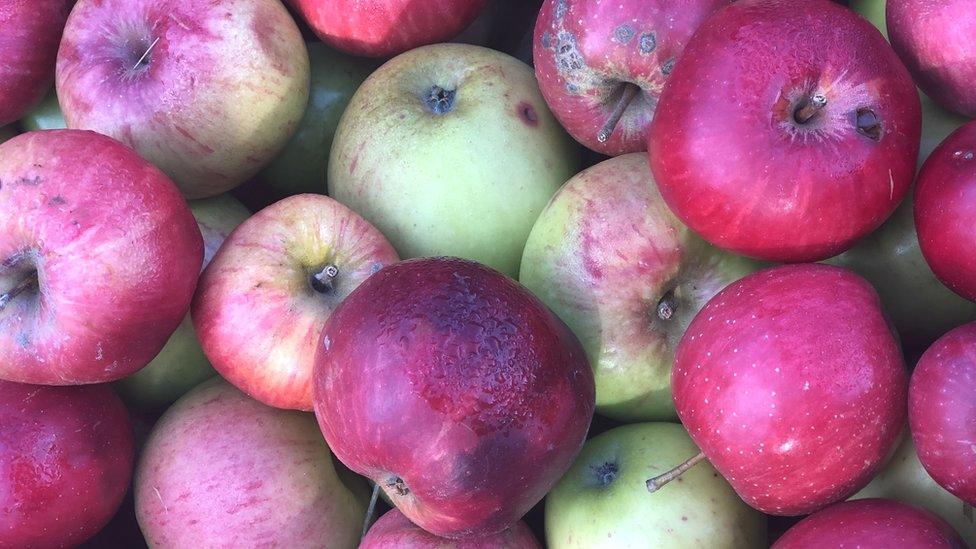Charity creates 50 community orchards in city
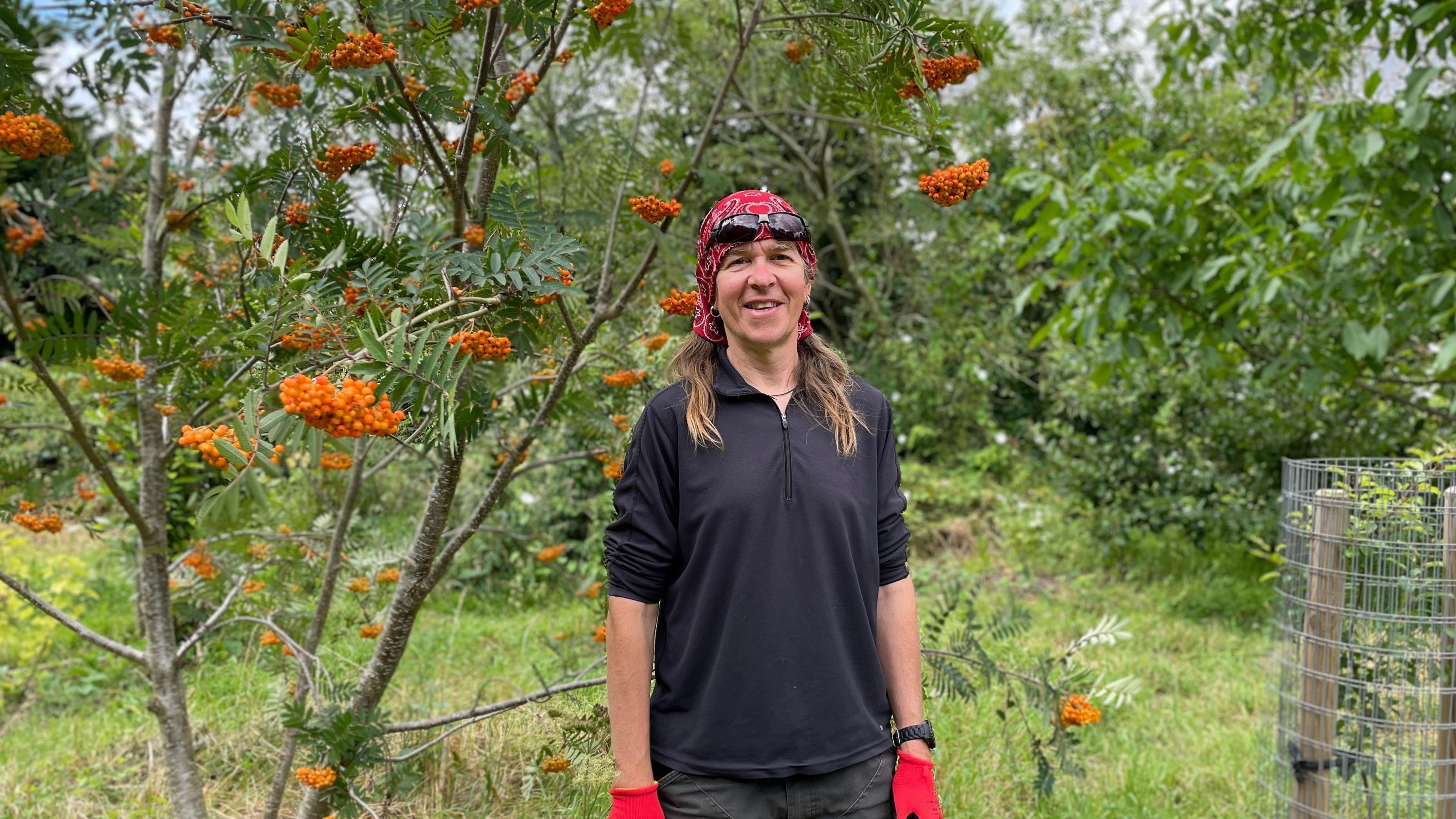
Rob Tilling set up the charity Fruit and Nut Village to bring communities together
- Published
Community orchards are returning to Birmingham, with the aim of teaching people how to grow their own food and be part of the solution to climate change.
They are being set up by the Fruit and Nut Village charity which started in 2018 and now has more than 50 sites.
Fruit trees, bushes and other perennial plants can now be seen growing on spare bits of public land, at allotments and outside churches and mosques.
Once established, the long-term aim is to distribute the produce to those most in need, but local people are also invited to pick the odd bit of fruit.
The charity relies on teams of volunteers to look after the sites, among them homeless people.
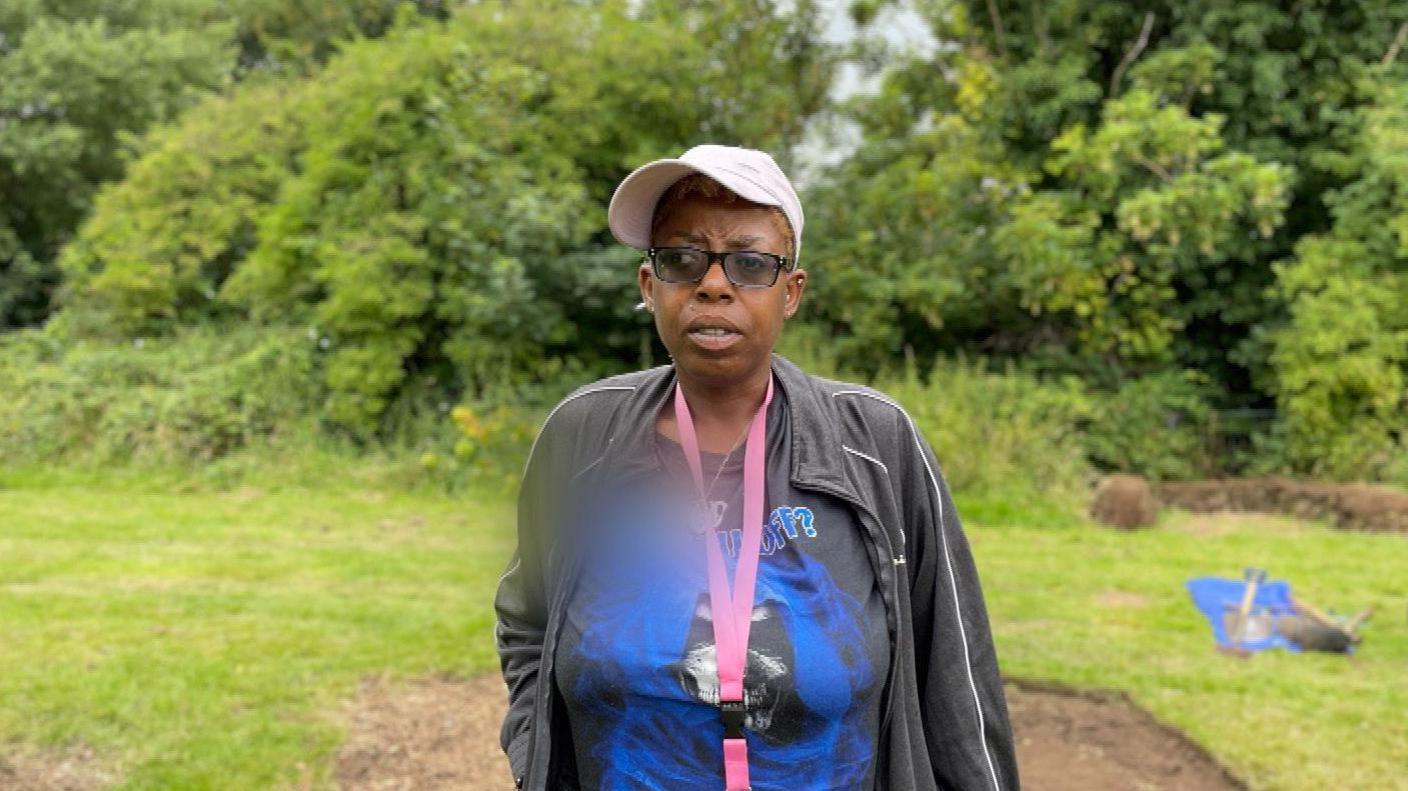
Volunteer Chrissie Elliot said the project helped homeless people occupy their minds
At one of the newer orchards in Balsall Heath, homeless people from Birmingham City Mission Care Centre help out.
Ruth Buttery, deputy manager of the care centre, said the majority of its service users don't have access to their own gardens.
Among those volunteering is Chrissie Elliot, a former drug user, who has turned her life around, thanks to the support she's received from the Christian charity.
She said she loved "being in the garden and planting".
For those still using drugs, "it's a good way for them to occupy their minds", she added.
Mrs Buttery said the volunteers felt a "sense of achievement" that after finishing a session they had cleared an area or planted some trees.
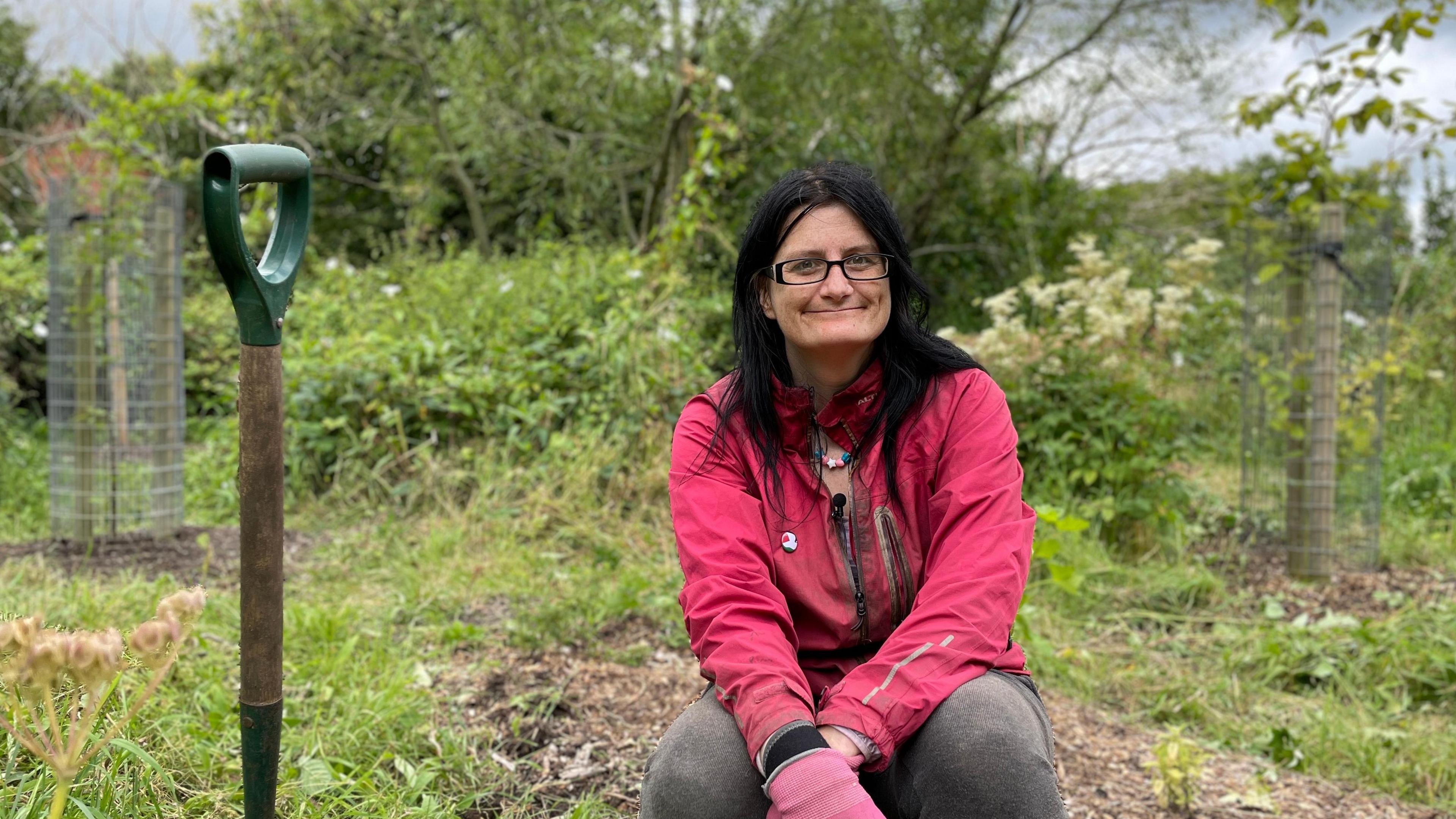
Ruth Mottram, a volunteer at Kingdom Forest Garden in Stirchley, said she was proud of what they'd achieved
A few miles away in Stirchley is one of Fruit and Nut Village’s, external more established sites, Kingdom Forest Garden.
Here, they grow everything from apples and walnuts to whitecurrants and rhubarb.
Volunteers meet once a week and each have their own reason for giving up their time.
Ruth Mottram, 40, who has taken time out from her office job said: "It's been really beneficial to my mental health, getting out and getting my hands dirty".
Stephen Gilliver, 75, who has been retired for 14 years, said it stopped him from getting idle and added "it gives me structure in my life".
Two of the youngest members of the team, Ben, 6, and Dan, 3, said they enjoyed planting, wood-chipping and eating the fruit grown on site.
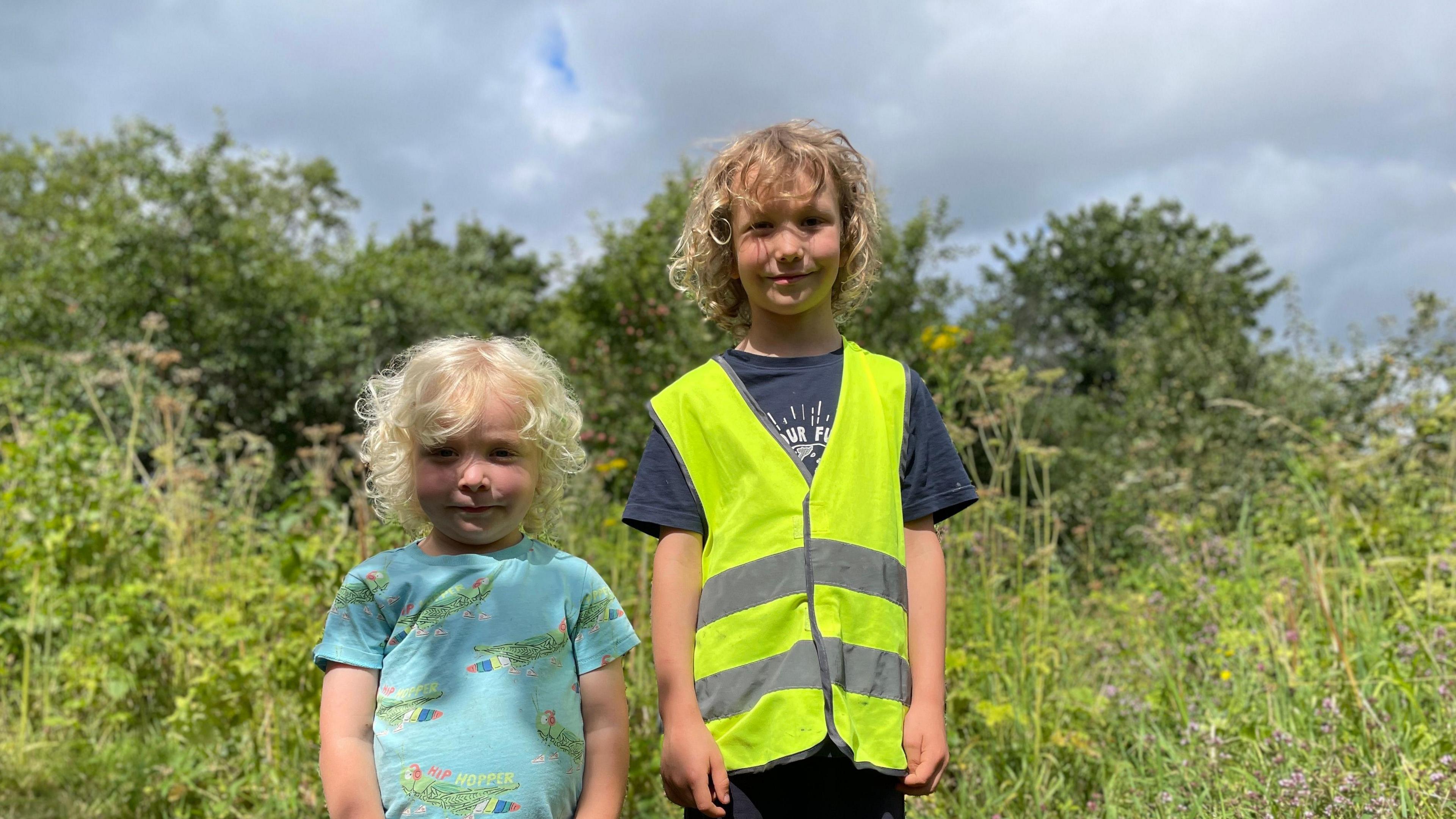
Dan and Ben are among the youngest volunteers at Kingdom Forest Garden in Stirchley
By planting trees and plants and encouraging biodiversity back to these areas the charity is also doing its bit to help climate change.
They even use locally sourced wood chip which helps to put carbon back into the soil.
Mr Tilling said, "people aren't coming to the project because they want to help with climate change but when they're here they learn a little bit about it".
With sites already in Stirchley, Balsall Heath and Druids Heath, Fruit and Nut Village plans to expand into other areas such as Hodge Hill.
In the future, it plans to partner with organisations such as Incredible Surplus, external to distribute the fruit and vegetables to those who need it most.
But the hope is that these edible landscapes can also be enjoyed by local people for years to come.
Related topics
- Published18 May 2023
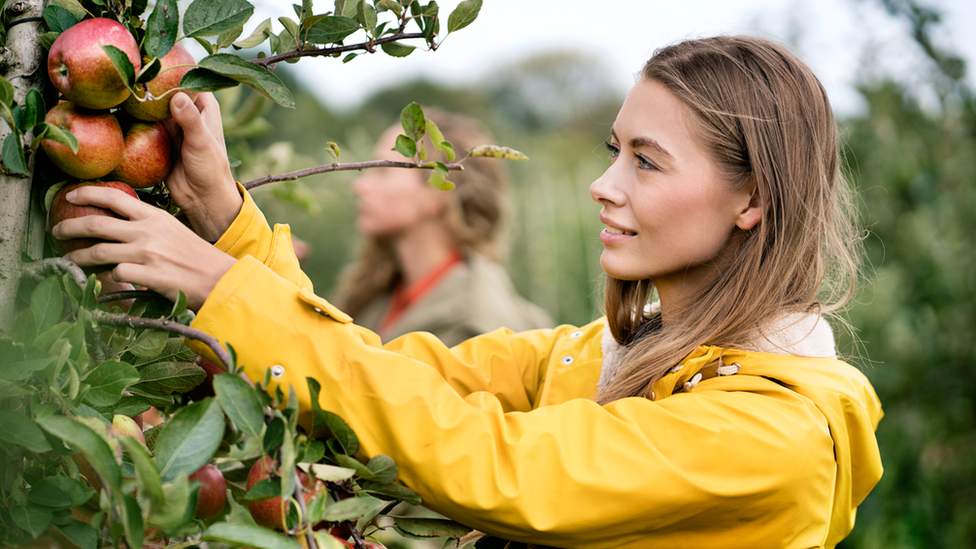
- Published11 October 2022
